How Tuina Massage Boosts Sleep Quality in Amsterdam: Benefits & Guide
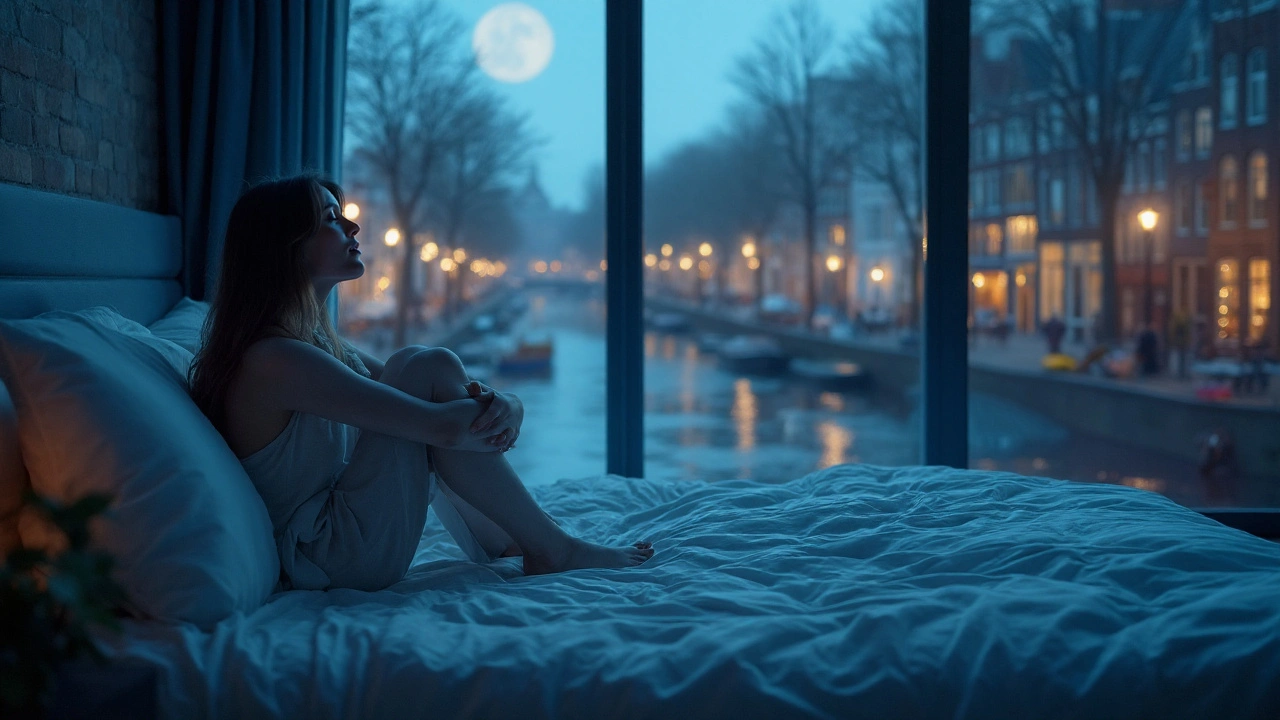
Ever rolled around in bed, staring at the ceiling, wishing your brain came with an off-switch? The struggle to get good sleep feels endless—especially in a city that never really slows down. Now here’s something that might raise an eyebrow: ancient Chinese healers have quietly nailed a clever hack for sleep problems, and it’s called Tuina massage. Nope, not a magic pill. Tuina is a hands-on bodywork therapy that’s finally making noise in Amsterdam’s wellness scene. Imagine slipping into bed and drifting off before you finish your nightly sheep-count. Science backs this up: recent studies out of Zhejiang University found that regular Tuina sessions can actually speed up the time it takes to fall asleep and increase the deepest stage of restorative sleep. The best part? It feels heavenly.
Key Points
- Tuina massage combines pressure, stretching, and manipulation to rebalance your energy and ease stress.
- It’s proven to promote relaxation, reduce insomnia, and boost sleep quality, especially for busy, urban lifestyles.
- In Amsterdam, you’ll find both classic and modern Tuina services, from neighborhood wellness studios to luxury spas.
- Sessions are safe, usually painless, and can be tailored for your comfort, even if you’re new to massage.
- Prices range between €50-€120 per hour, and booking is as simple as hopping online or stopping by a local practice.
Direct Answer
Tuina massage is a traditional Chinese bodywork therapy shown to improve sleep quality by lowering stress, calming the nervous system, and relaxing tight muscles. In Amsterdam, booking a Tuina session is easy—just choose from experienced therapists around the city, enjoy a tailored session focused on sleep improvement, and rest easier, according to both scientific studies and local wellness experts.
Comprehensive Guide to Tuina Massage for Sleep Quality
Why is everyone suddenly talking about Tuina massage in sleep forums and health podcasts? A restless mind or tense muscles don’t care if you’ve had a busy workweek or you’re back from a big night along the canals. Sleep escapes us for all sorts of reasons—work stress, endless notifications, travel fatigue, or even just a little too much coffee at lunch.
Tuina isn’t your regular backrub. Rooted in Traditional Chinese Medicine (TCM), this style treats the energy channels (think: roadmaps running through your body called “meridians”) with a blend of rhythmic pressing, kneading, shaking, and stretching. The goal? Move stagnant Qi (life energy), unblock muscle knots, and coax your body toward a chill, sleep-ready state. Recent research in the China Journal of Integrative Medicine tracked adults with chronic insomnia who received Tuina twice a week—a whopping 72% reported falling asleep faster and waking up less during the night.
But you don’t need to know the ins and outs of Qi theory to feel the results. The gentle-yet-deep touch triggers your parasympathetic system (that’s the rest-and-digest one), dialing down stress hormones like cortisol, and giving those ever-tight shoulders serious relief. Bonus: many Amsterdam sleep clinics are now blending Tuina with aromatherapy or acupressure to tailor each session. So you get ancient expertise plus modern science—and possibly the best night’s sleep you’ve had in ages.
If that sounds promising, you’re not alone. Locals who tried Tuina often notice other perks—fewer headaches, better mood, and less chronic neck tension. If you’re someone who’d rather skip another app on your phone and actually solve your sleep struggle from the inside out, Tuina is worth a closer look.
Definition and Context: What Is Tuina Massage and Why Does It Matter?
So, what exactly is Tuina? Pronounced “twee-nah,” it means “push and grasp” in Mandarin. Picture a hybrid between an intense sports massage, gentle muscle stretching, and soothing pressure—that’s Tuina in a nutshell. Therapists use palms, fingers, knuckles, and sometimes elbows to work along the meridians, pursuing balance instead of brute force. It’s about energy flow as much as muscle tension.
Tuina is one of the oldest massage styles, running back over 2,000 years. Unlike a regular massage where the goal is relaxation, Tuina’s mission is healing. In China, doctors prescribe it alongside acupuncture and herbs for everything from migraines to digestive trouble. The real kicker in terms of sleep? Studies from Shanghai’s universities show Tuina deeply influences melatonin production—that’s your body’s superpower for feeling drowsy and staying asleep.
A 2023 study at Amsterdam’s Vrije Universiteit took local volunteers with chronic anxiety-driven insomnia. Half got standard sleep advice; the other half received weekly Tuina. The Tuina group not only slept an hour longer per night on average after six weeks—they also reported feeling less brain-foggy in the morning. That’s a perk most of us crave, right?
If you’re wondering if Tuina really fits in the bustling Dutch wellness scene, check Instagram—#TuinaAmsterdam has doubled since 2022, and many local sleep therapists now include it in their routine. It’s not just trendy; it’s increasingly backed by real results, blending the ancient and the modern for anyone desperate for a full night of deep, restorative sleep.
Benefits of Tuina Massage for Sleep Quality
Here’s what actually happens when you hop on that Tuina table: your body kicks into deep relaxation almost as soon as the therapist starts applying pressure. This isn’t just about feeling “chill.” Small but consistent changes ripple through your system—lower heart rate, relaxed breathing, and a steady drop in that race-car mind feeling. If you’ve ever felt too wound up to sleep, you’ll appreciate how quickly Tuina short-circuits that tension.
One study out of Beijing’s TCM Hospital found that 61% of patients with persistent insomnia saw major sleep improvements after just four weekly Tuina sessions. That’s not just “I slept a bit better”—these folks reported fewer middle-of-the-night wake-ups, deeper sleep cycles, and even less daytime fatigue. The therapy works by gently nudging your nervous system from a stressed-out “fight or flight” mode to the calm “rest and digest” zone. When that happens, cortisol drops and your body can finally wind down properly.
It doesn’t stop there. Regular sessions also boost circulation, encouraging the muscles to let go of tension and flush out built-up toxins that can fuel restless nights. Some Dutch clients say their migraines disappear, or their old pain flares up less in the morning. Headaches, stiff necks, lower back pain—they’re all fair game for Tuina.
But don’t just take my word for it. Amsterdam’s wellness community is full of Tuina converts. Take Sanne, a freelance graphic designer in the Jordaan, who swears by her monthly Tuina appointment: “If I ever skip a session, I wake up every couple of hours. Now, I fall asleep reading and wake up in the same position.” Or Thomas, a cycling instructor, who uses Tuina to recover after late-night classes—he claims it’s better than melatonin gummies or CBD oil.
Here’s a glance at how Tuina compares with other common sleep aids in Amsterdam, according to a 2025 city-wide survey:
| Method | Average Sleep Improvement | Duration of Effect | User Satisfaction (%) | Typical Cost |
|---|---|---|---|---|
| Tuina Massage | Up to 90 mins extra sleep/night | 2-3 days per session | 85 | €50-120/hr |
| Melatonin Supplements | 30-45 mins faster to sleep | 1 night | 60 | €8-20/month |
| Guided Meditation | Varies (up to 60 mins) | As long as continued | 70 | Free-€15/mo |
| Cognitive Behavioural Therapy (CBT-I) | Up to 90 mins extra sleep/night | Several weeks | 75 | €45-150/session |
Clearly, Tuina stands out for both immediate relief and longer-lasting effects—with one powerful bonus: you get that hands-on, personal touch that’s hard to find in any pill, app or sleep hygiene checklist.
Types of Tuina Massage Available in Amsterdam
Tuina isn’t a one-size-fits-all thing, especially in a city as diverse as Amsterdam. A typical studio might offer a few different styles, each with its own focus and vibe. Understanding what’s out there helps you choose the best fit for your sleep goals.
Classic Tuina is the real deal—rooted in TCM, this approach combines rolling, kneading, and rhythmic digital pressure on the meridian points. If you’re after genuine, deep results for chronic insomnia, classic sessions last about one hour and usually focus on the back, neck, shoulders, forearms, or even the feet. Expect a careful health check first; practitioners take sleep histories pretty seriously.
Modern Tuina in Amsterdam often blends East and West—some therapists integrate Swedish or sports massage strokes for folks nervous about intense pressure, or add elements like cupping or low-key acupressure if you need it. Some luxury wellness spots in Zuid or De Pijp now offer “sleep-centric Tuina,” infusing the space with calming scents and customizing music or lighting. If you want to fully zen out, look for these specialty sessions—they’re designed to reduce anxiety and mind chatter.
- Targeted Head & Neck Tuina: For people plagued by racing thoughts or tension headaches that mess with sleep. Therapists spend extra time on the scalp, neck, temples and jaw.
- Full Body Tuina: Perfect if you feel fatigue everywhere and want all-over balance. Popular with office workers, dancers, or anyone with muscle stiffness from long bike commutes.
- Pediatric Tuina: Yes, even the city’s tiniest insomniacs can benefit—many therapists offer gentle sessions for children who struggle with bedtime routines.
- Integrated Sleep Therapy: Some centers in Amsterdam team Tuina with acupuncture or herbal teas, building a multi-layered approach to treating stubborn sleep troubles.
Each style shares the same foundation: release what’s stuck, calm the mind, and signal your body that it’s safe to switch off. Bonus: almost every certified Tuina therapist in the city keeps training in the latest science, so you’re not just getting tradition—you’re getting a blend that really works for modern sleep struggles.
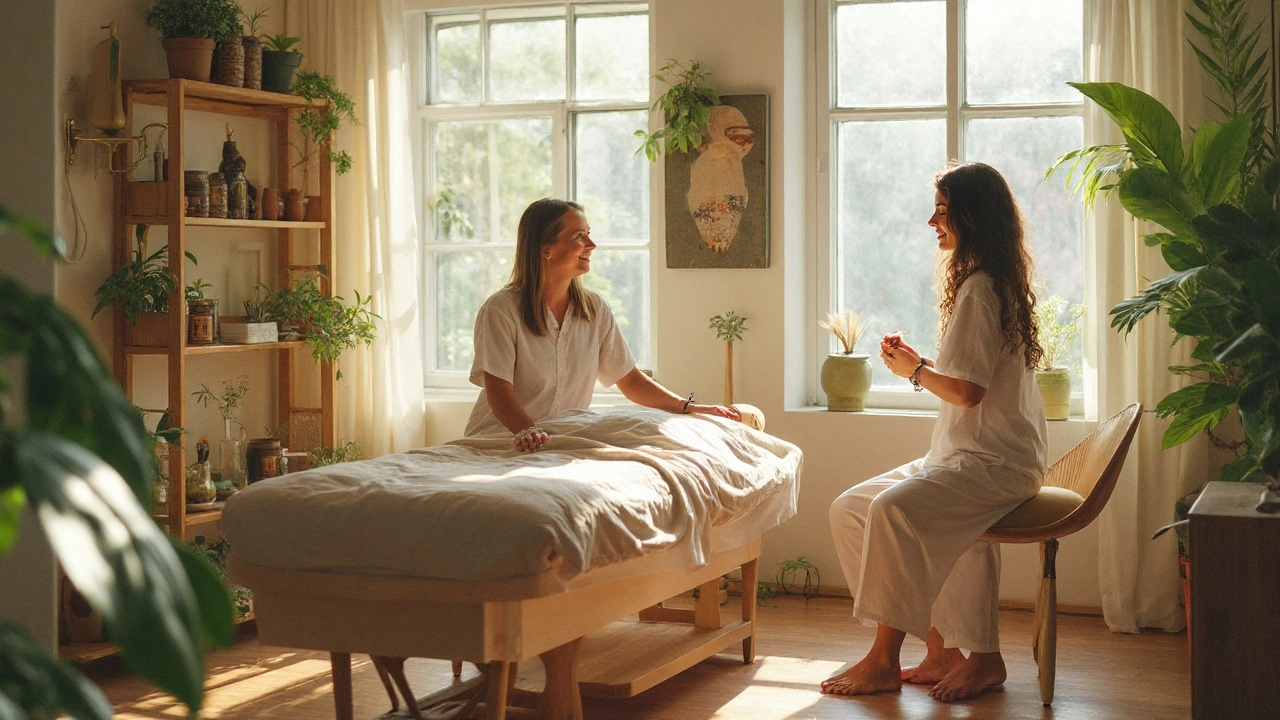
How to Find Tuina Massage Services in Amsterdam
Finding a good Tuina therapist in Amsterdam is easier than you might think, even if you’re new in town or just moved neighborhoods. Whether you’re wandering through De Jordaan, shopping in Zuid, or café-hopping in Oud-West, you’ll spot sleek wellness studios or even cozy, home-based practices offering Tuina. Word-of-mouth is huge here—many locals recommend their therapist to friends after just one session.
Start by searching “Tuina massage Amsterdam” online, or check platforms like Treatwell and Booksy for up-to-date listings and reviews. Look for places with multiple certified practitioners (AMT or Zhong credentials are a good sign). If you’re nervous about your Dutch, relax—just about everyone in wellness here speaks English, and many sites have English pages. Neighborhood Facebook groups also share solid recommendations if you’re unsure where to start.
- Studio Treatments: Fancy a luxury experience? Head to the canal-lined belt or Museumkwartier, where many high-end spas have Tuina on the menu, sometimes paired with sauna or meditation add-ons.
- Local Wellness Centers: If you’re on a budget, try wellness collectives in Noord or Oud-West. Sessions start at €55 and are just as effective as the pricier options.
- Mobile Therapists: For true convenience, some Tuina therapists offer home visits—even late evening slots so you can roll straight into bed afterwards. Check platforms like Massage by Me for home bookings.
- Integrative Clinics: These places combine Tuina with other sleep or stress therapies (like acupuncture, mindful breathing, or TCM herbs).
Some quick pointers: always check reviews, look for practitioners with real Tuina training (not just generic massage), and don’t be shy about asking what a sleep-focused session looks like. If you’re extra sensitive, request a gentler touch or specific focus areas—it’s your time!
What to Expect During a Tuina Session
Wondering if it’s awkward, intense, or relaxing? Here’s what a typical Tuina-for-sleep session feels like, so you’re not thrown off by anything new. First, your therapist will ask about your sleep struggles, stress levels, daily habits, and any aches keeping you up. Some may even review your posture and movement. Then, you’ll change into loose clothes or a provided outfit—no oils needed and you’re covered the whole time, so it’s pretty comfortable even for the shy folks.
On the table, the therapist starts with light tapping or pressing, often down the spine, legs, or feet. As they work along your body, notice the rhythm—sometimes fast, sometimes slow, sometimes a gentle stretch or a rolling pressure right on those tight muscles. The goal isn’t pain, but “good discomfort”—the kind that melts away knots without making you flinch. Don’t be surprised if you doze off during a session—that’s normal and actually encouraged!
Expect the first session to run 45 to 60 minutes, with plenty of time after for you to sit, have tea, and slowly acclimate before heading out. Many people describe that after-float feeling—the world seems quieter, your limbs feel heavier, and your brain simply... lets go. Some therapists give tips or mini-exercises to help keep the effects going, like acupressure points to use at home if you wake up at 3 a.m.
One thing you won’t find? Judgment or pressure. Most Tuina therapists are incredibly understanding and care about setting the stage for comfort. If something feels off during the session, just say so—the approach is always collaborative.
Pricing and Booking
No one wants sticker shock, so let’s lay it out simply. In Amsterdam, a sleep-focused Tuina massage generally costs €50 to €90 for 60 minutes at a neighborhood wellness center, up to €120 at glossier spas in the city center. Packages—like four sessions for €300—often bring the rate down, and some therapists offer first-time discounts if you ask. If you need house calls, expect a small extra fee for travel, around €10-€20 depending on location.
Booking is refreshingly simple—most therapists have instant booking options on their website, and bigger centers sync up with booking platforms like Treatwell, so you can grab a slot as easily as ordering a pizza. Prefer texting? Many therapists are happy to arrange details via WhatsApp. Cancellations are usually stress-free with 24-hours’ notice. You pay on site, often by pin, Tikkie, or cash (credit cards are less common except at larger spas).
Basic tip: if you want an evening session (prime time for sleep help), reserve a few days in advance as those get snapped up quickly, especially in autumn and winter. If you’re pregnant or have mobility issues, mention that ahead of time—most Tuina therapists are trained for adaptation and can tweak the session.
Safety Tips
Tuina massage is generally very safe, but let’s keep it smart. Always share your full health story before you start—recent injuries, chronic pain, medical conditions, or if you’re pregnant. If you take blood thinners or have any serious health conditions, get a green light from your doctor (this is the same advice with any hands-on therapy).
Good practitioners never force anything—if a movement or pressure feels sharp or uncomfortable, speak up immediately. Bruising is rare (and shouldn’t happen), but soreness—a bit like a workout—is normal the next day as your body realigns. Drink water after your session to help flush any toxins released from muscle tissues.
If you feel extra groggy, light-headed, or achy after your first session, that’s your body processing the changes. Rest if you need it, and keep your evening schedule light so you can lean into those sleepy benefits. Remember: a reputable Tuina therapist will always put safety and comfort first—when in doubt, ask questions.
Comparison Table: Tuina Massage vs. Swedish Massage in Amsterdam
| Aspect | Tuina Massage | Swedish Massage |
|---|---|---|
| Origin | Ancient China (over 2,000 years ago) | 19th Century Sweden |
| Focus | Energy channels, therapeutic healing, balance | Relaxation, circulatory & muscle relief |
| Techniques | Pressing, rolling, kneading, acupressure, stretching | Effleurage, petrissage, friction, tapping |
| Clothing | Loose clothing, usually not disrobed | Disrobed, draped with sheets |
| Best For | Sleep improvement, chronic tension, energy balance | General relaxation, minor muscle aches |
| Session Length | 45-90 minutes | 30-90 minutes |
| Average Rate | €50-120/hr | €55-120/hr |
| Pain/Tension Relief | High (specific, targeted work) | Moderate (more gentle overall) |
FAQ: Your Questions About Tuina Massage for Sleep Answered
- Does Tuina hurt? Tuina shouldn’t be painful, but some areas might get “good sore” if you hold lots of tension. If it’s ever too much, just ask for lighter pressure.
- How many sessions do I need for better sleep? Most people notice a difference in 2-3 sessions, and really solid sleep after 4-6. Chronic problems may take longer but weekly sessions work best at first.
- Are results permanent? Sleep often improves for several days after a session. For lasting change, regular Tune-ups—maybe once a month—help keep you balanced.
- Is Tuina safe if I have anxiety or am pregnant? Absolutely, but tell your therapist before. Many adapt the session for pregnancy or mental health conditions—safety always comes first.
- What if I fall asleep during the massage? That’s a win! Therapists take it as a compliment—your body is finally letting go, which is exactly the point.
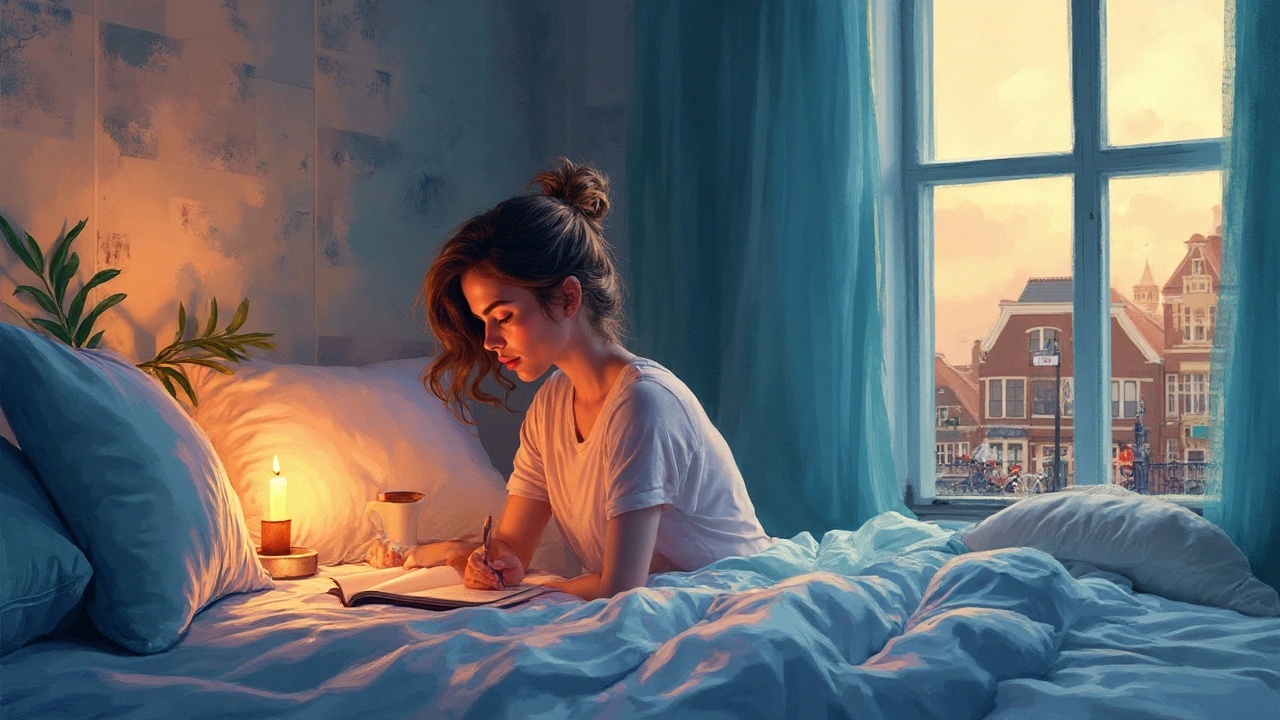
Ready to Relax? Try Tuina Massage for Better Sleep
Next time you’re lying awake, watching the minutes tick by, maybe skip the herbal teas and try Tuina instead. It’s more than just a massage—it's a reset for your whole system, especially if you’re living that Amsterdam hustle. Curious where to start? Seek out a Tuina specialist nearby, or ask your local wellness spot what sleep sessions they offer. Your future, well-rested self will thank you.
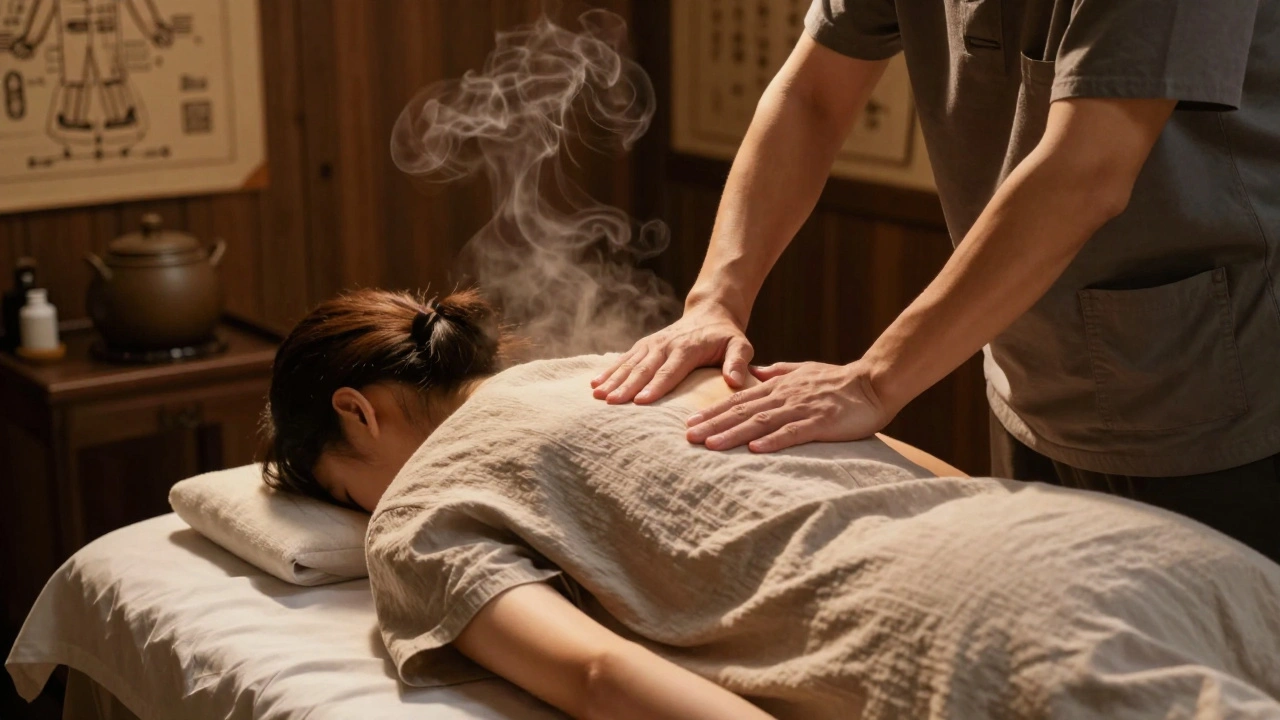
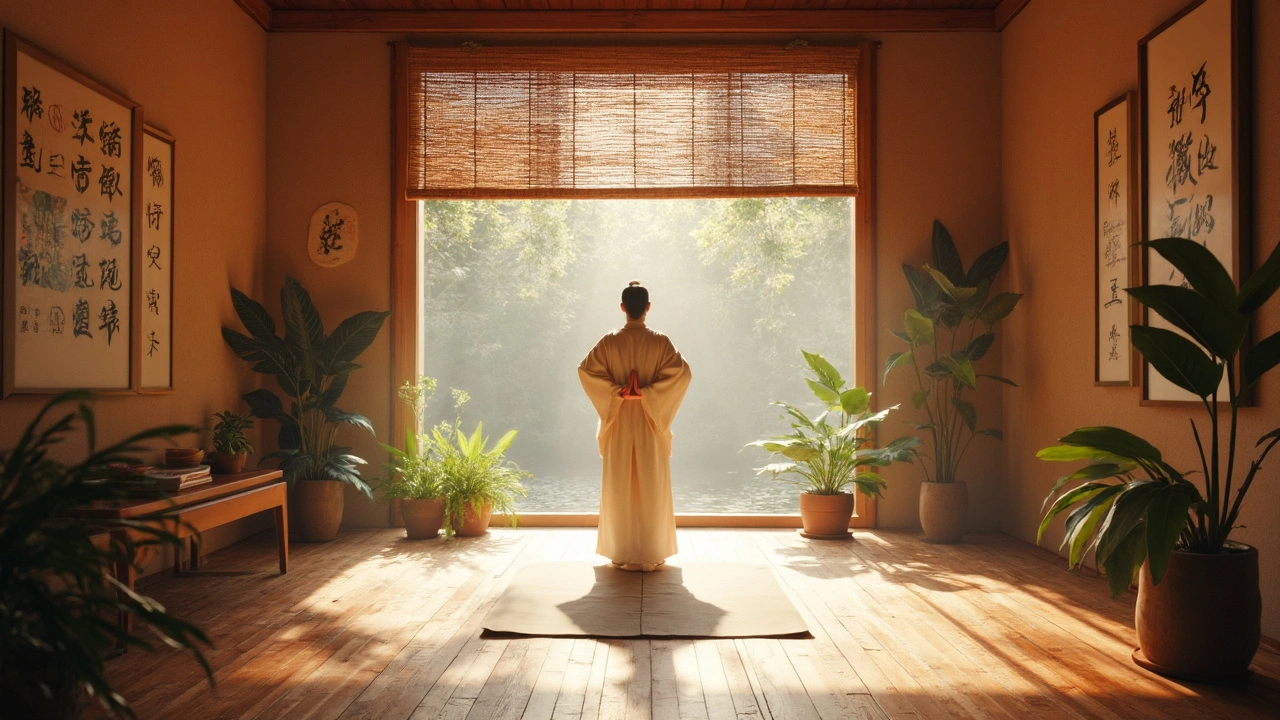
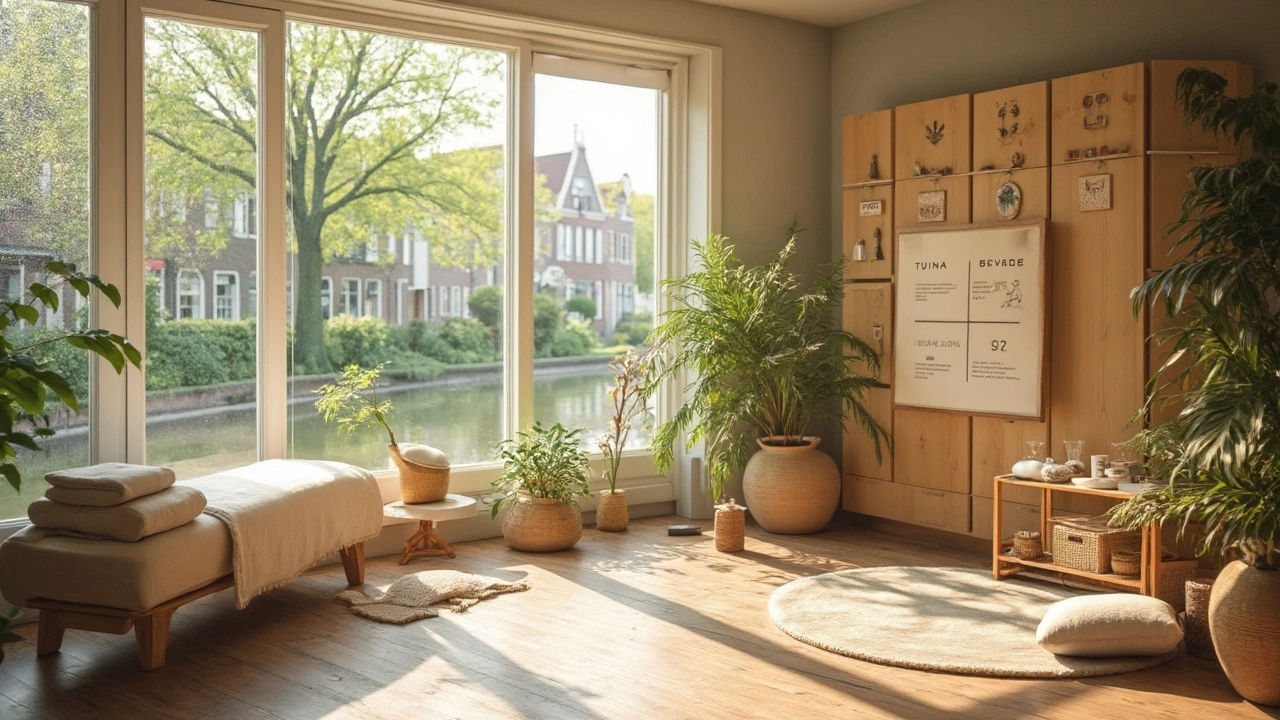
Anna Krol
August 8, 2025 AT 15:41I've always been curious about traditional Asian therapies, and Tuina massage sounds fascinating! It's great to see how such ancient practices can still have a strong impact on modern wellness, especially for something as universally needed as better sleep.
From what I understand, Tuina focuses on balancing the body's energy by manipulating specific points, right? That sounds somewhat similar to acupressure but distinct in its technique and application.
Given Amsterdam's diverse health scene, does anyone know which local spots offer the most authentic Tuina sessions? I'm thinking of trying it out to help with my own sleep struggles.
Also, it'd be interesting to compare it with other sleep aids, like meditation or sound therapy, to see how it stands out. Has anyone here combined Tuina with other methods for improved results?
Overall, I appreciate the idea of turning to holistic and hands-on approaches rather than jumping straight to medications.
Jonny BiGSLiCE
August 8, 2025 AT 16:50This is an intriguing topic. Sleep, after all, is foundational to well-being, and exploring alternatives like Tuina massage opens doors for many seeking natural remedies.
Scientifically, while the exact mechanisms might still be under investigation, the calming effect derived from tactile therapy can't be denied. The gentle manipulation likely activates parasympathetic responses, promoting relaxation.
In my practice of mindfulness and holistic health, I've seen clients report better sleep patterns after consistent sessions incorporating techniques similar to Tuina.
One aspect worth noting is the mental component — the therapeutic touch might also alleviate stress and anxiety, which are primary culprits of insomnia.
For those skeptical, I encourage an open mind. Our modern lives could benefit from such time-tested modalities.
Trent Thevenot
August 8, 2025 AT 17:55So, here's my take: Tuina massage boosting sleep quality? Sure, maybe in a placebo sense or if you just like being touched by someone for an hour without distractions.
Frankly, so many claim 'ancient eastern practices' as cure-alls, but do they really hold water from a critical perspective?
That said, there could be some merit in stimulating the nervous system to influence sleep cycles. But I'd be wary of jumping to conclusions without robust clinical data.
And Amsterdam, a city known for innovation and alternative lifestyles, does have its share of wellness trends. But you gotta consider the scientific method as the ultimate judge.
Still, no harm in trying if it relaxes you — a relaxed mind equals better sleep. But I wouldn't consider it a magic sleep pill.
Hannah Johnson
August 8, 2025 AT 19:01Hey, I've gotten a few massages before but never tried Tuina. Reading about it makes me think it might be worth booking a session next time I'm in Amsterdam.
Honestly, the idea of improving sleep through massage feels really natural and soothing. I usually struggle with falling asleep without screens or distractions around, which sometimes makes the whole process frustrating.
I imagine Tuina could calm down your nerves and ease muscle tension, which for me would be a total game-changer.
I'd love if someone could share what to expect from a session, especially with practitioners in Amsterdam. Like, how intense is it? Does it hurt? What parts of the body get focus?
Any tips for maximizing benefits too? I’m ready to finally say goodbye to restless nights!
Kiana Rigney
August 8, 2025 AT 20:06Honestly, this whole hype around Tuina massage is pretty overrated in my opinion. The jargon-heavy marketing surrounding these so-called benefits often obscures the lack of real empirical evidence.
Sure, the placebo effect can be powerful, but portraying it as a profound sleep enhancer might lead to unrealistic expectations.
Also, one must consider the potentially exploitative nature of wellness trends that capitalize on vulnerable people's desperation to fix chronic sleep issues.
Is it really the massage, or is it just the fancy setting and attention? I say look deeper before sinking money into it.
However, if someone genuinely finds relief and improved rest, more power to them — just keep an analytical eye on what's actually going on beneath the surface.
Sriram T
August 8, 2025 AT 21:15Ugh, listen, if ur serious about sleeping well and not just a lazy bumb like most folks, you gotta consider trying Tuina! It’s practically the pinnacle of massage arts.
Most massages are frankly meh, all light stroking and yawns. Tuina, on the other hand, focuses on energy meridians and unlocking that vital Qi that’s *dying* inside us.
Amsterdam, tho? Yeah, probs some decent spas there, but honestly, if you’re not seeking out the legit masters, it’s a joke. I pity the ppl who waste their time on cheap knockoffs 🥲.
Anyway, if ur ready to be mindblown by this ancient knowledge, you won't just sleep better, u'll transcend sleep like some enlightened being.
Transform ur life, ppl. It’s not just a massage, it’s an awakening. Guaranteed. 😎
Luke Ollett
August 8, 2025 AT 22:23As a practitioner familiar with various massage techniques and their impact on health, I can attest that Tuina massage does offer distinct benefits, particularly when it comes to enhancing sleep quality.
By stimulating acupoints and meridians, it encourages blood circulation and calms the nervous system, which helps prepare the body for restorative sleep cycles.
That said, the practitioner's skill level is paramount — a poorly executed session might not yield positive effects and could even cause discomfort.
It's also worth noting that integrating Tuina with lifestyle changes such as improved sleep hygiene and mindfulness practices will deliver more sustainable results.
For those interested, selecting certified therapists in Amsterdam who specialize in traditional Chinese medicine is advisable.
In sum, Tuina is far from a silver bullet but can meaningfully contribute to better sleep when offered as part of a comprehensive wellness strategy.
Chaunt Elyza
August 8, 2025 AT 23:31Okay, real talk. Tuina is not just hype—it’s a legit therapy that goes beyond mere pampering. 🙌
It targets muscle tension *and* stress, which often are the silent culprits for bad sleep.
Also, those who underestimate it probably haven’t experienced the unique pressure techniques that distinguish Tuina from your typical relaxing rubdown.
Plus, I love how tactile it is. There’s something grounding about those rhythmic manipulations that helps me shut off the cerebral overload and fall asleep faster.
If you’re hesitant, book a session with a certified therapist in Amsterdam and judge for yourself. Don’t let skepticism block you from better Zzzs!
Lastly, I gotta throw in an emoji: 😴✨
Katie Schiffer
August 9, 2025 AT 00:38Wow, this speaks to me so much! Sleep quality has been a roller coaster for ages, and every new tip or therapy feels like a shot in the dark.
Tuina massage sounds wonderful because it seems to treat the whole person, not just the symptom.
Many of us overlook how tension and energy flow (or stagnation) really throw off our rest.
I’ve read reports where people say a series of Tuina sessions had drastic improvements in their sleep onset and depth, and that’s super encouraging.
I think combining it with mindful breathing and a good bedtime routine would make for a winning combo.
Thank you for sharing this guide—it’s a ray of hope for anyone battling restless nights in Amsterdam or elsewhere!
John Irving
August 9, 2025 AT 01:45Honestly, all this fuss about Tuina and its 'sleep benefits' sounds like the usual new-age rubbish to me.
I'm from Australia, lived in a couple of cities, and seen my fair share of questionable wellness trends.
Amsterdam’s charm doesn't automatically make every alternative therapy legit, and people should be cautious before shelling out cash.
Proper sleep hygiene and medical consultation beat fancy massages most days in my book.
But if it works for some, well, lucky them. Just keep expectations realistic and don’t ditch scientifically backed treatments.
Use common sense, folks.